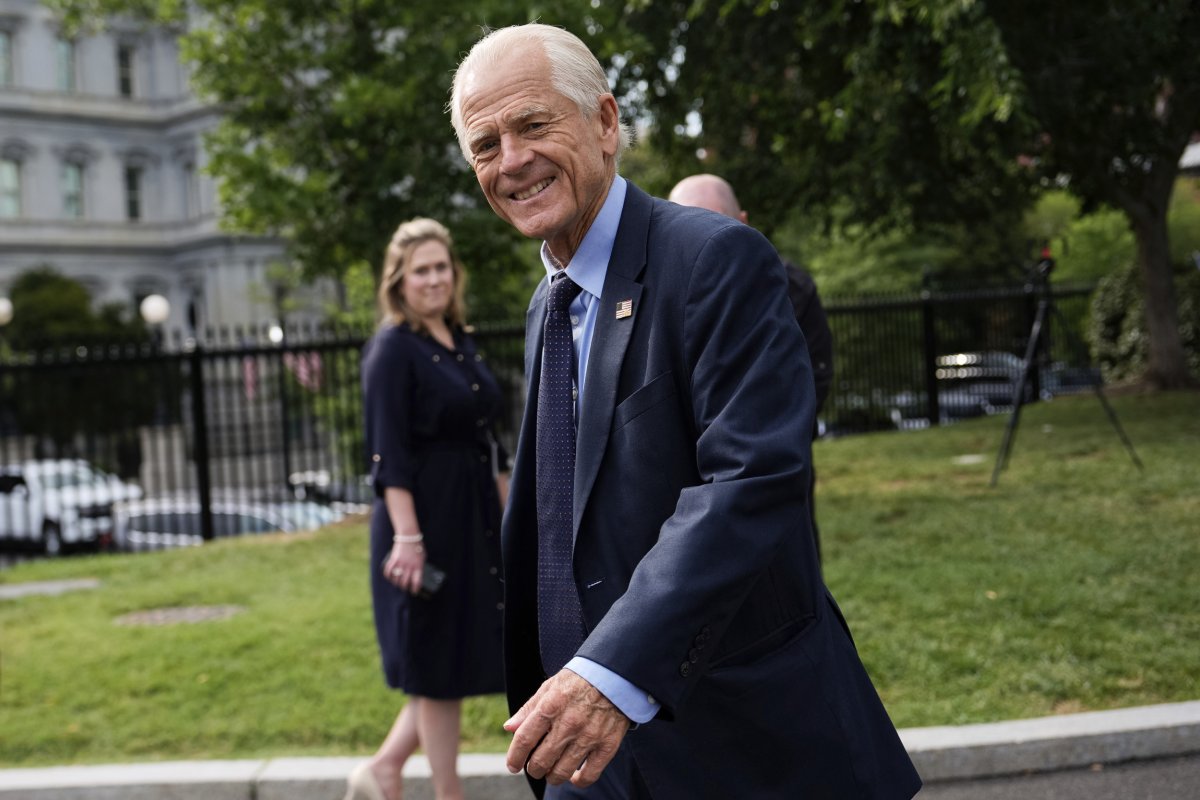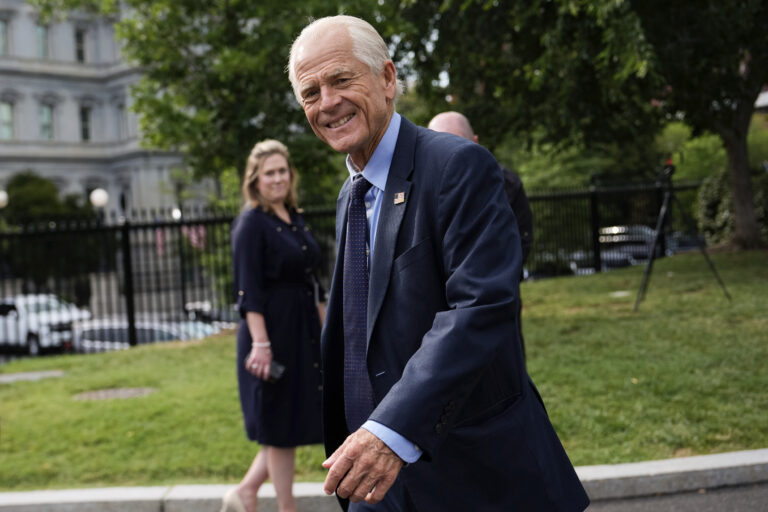One of Donald Trump’s top trade advisers believes the president’s policies could earn him a nomination for the world’s most prestigious economics award.
“A lot of people talk about Donald Trump for the Nobel Peace Prize,” Peter Navarro, the White House Senior Counselor for Trade and Manufacturing, told Fox Business on Thursday morning.
“I’m thinking that, since he’s basically taught the world trade economics, he might be up for the Nobel in economics.”
Why It Matters
As Navarro noted, Trump has already been tapped to receive nominations for the Nobel Peace Prize, most recently by Israeli Prime Minister Benjamin Netanyahu. Were Trump to receive a nomination for the economics prize—officially the Nobel Memorial Prize in Economic Sciences—he would become the first head of state to receive this honor. However, a nomination and a win remains highly unlikely, given the prize is awarded primarily for lasting contributions to economic theory rather than economic policies, effective or otherwise.
What To Know
Navarro, one of the key minds behind Trump’s trade agenda, described the impacts of the president’s economic policies as a “fundamental restructuring of the international trade environment in a way where the biggest market in the world has said you’re not going to cheat us anymore. We’re going to have fair deals.”
The administration has struck a handful of trade deals in recent weeks, albeit fewer than the number promised at the outset of the first pause on reciprocal tariffs. So far, Trump has announced deals with the United Kingdom, Vietnam, Indonesia, the Philippines, Japan, the European Union and South Korea.
On Thursday, officials from the U.S. and Pakistan announced an agreement that will allow Washington to assist in developing Pakistan’s oil reserves and result in lower tariffs for the South Asian nation, ABC reports. However, details regarding the agreed tariff rate have not yet been revealed.
U.S. officials are also racing to finalize a more comprehensive agreement with China, after agreeing in May to lower each other’s tariffs for 90 days to pave the way for trade negotiations.

Julia Demaree Nikhinson/AP Photo
“Everything he’s doing has defied the critics,” Navarro added. “The tariffs have been tax cuts rather than inflation, and it’s working beautifully.”
Tariffs are import taxes paid by importers, and have been shown to contribute to higher prices on foreign-made goods as these extra costs are passed onto consumers. However, the impacts of tariffs on inflation have so far been more muted than initially anticipated.
Experts told Newsweek previously that “front-running” by importers, as well as companies being reluctant to immediately hike prices for fear of “consumer backlash.” On Thursday, Federal Reserve Chair Jerome Powell said he expects more inflationary effects to appear in future data on consumer prices.
What People Are Saying
White House trade adviser Peter Navarro told Fox Business on Thursday: “I’m thinking that since he’s basically taught the world trade economics, he might be up for the Nobel on economics, because this is a fundamental restructuring of the international trade environment.”
Talk show host and former Republican congressman Joe Walsh responded to Navarro on X, writing: “Oh f—–. It’s time for another massive asteroid to hit this planet. Our species here has run its course. Let’s see what comes next.”
What Happens Next?
Trump’s suspension of “reciprocal tariffs” will end on Friday, after which countries that have been unable to finalize a trade deal will see tariff rates revert to the levels announced on April 2. Speaking to Fox News recently, Commerce Secretary Howard Lutnick said that there would be no further pauses after this date.
The 90-day tariff pause on China is due to end on August 12, with the recent talks in Stockholm concluding without any indication of another extension.


